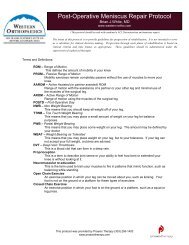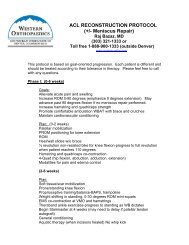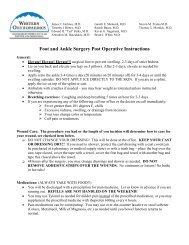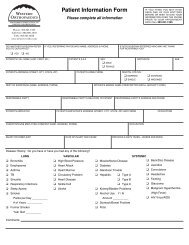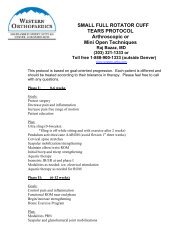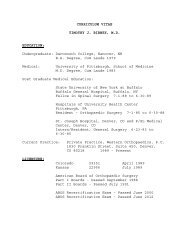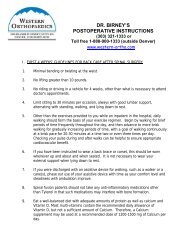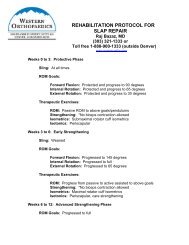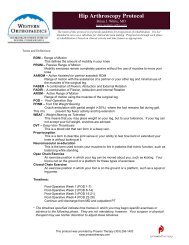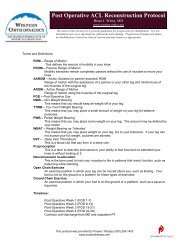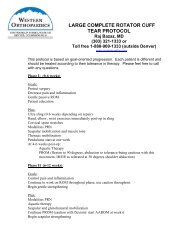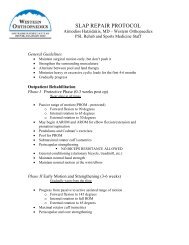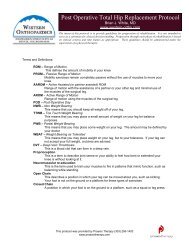Anterior Hip
Anterior Hip
Anterior Hip
- No tags were found...
Create successful ePaper yourself
Turn your PDF publications into a flip-book with our unique Google optimized e-Paper software.
Risks of Joint ReplacementOver 400,000 patients a year have successful joint replacement surgery. As with any type of surgicalprocedure there are certain risks associated with joint replacement surgery. Though complications are rareand extensive measures are taken to minimize these risks, it is important that you are aware of potentialproblems.InfectionInfection may happen while you are in the hospital or after you go home. Areas in the wound oraround the new joint are at a higher risk. To minimize the risk of infection, you will be given antibioticsbefore and after surgery. The hospital enforces strict infection control policies and procedures in everypatient care area. Your patient care team also ensures that the operating site is sterile, all instrumentshave been sterilized and the number of operating personnel entering and leaving the operating room islimited.Blood ClotsIf your blood moves too slowly it may form clots (lumps of blood). In order to prevent this you may begiven medication, special stockings to wear and instruction on exercises to help prevent this. If you havepain or swelling in your legs after surgery please call your physician. In rare cases blood clots may travelto your lungs causing shortness of breath, chest pain or even shock. Please notify your surgeon if youexperience any of these symptoms.Pain/Stiffness/SwellingAfter surgery you may experience some stiffness and swelling. As you move your new joint and yourmuscles strengthen, this pain will lessen and your flexibility will increase.DislocationIn rare occasions, the ball of the joint may come out of its socket. If this has occurred please notify yoursurgeon immediately so it can be corrected.LooseningIn rare occasions, a new joint may loosen and cause pain. If you feel this has occurred, please notify yoursurgeon as another operation may be required to help re-attach the joint to the bone.Nerve and Blood Vessel DamageIn rare occasions, nerve and blood vessels may be damaged during surgery. If this has occurred it oftenimproves over time and may disappear.Your surgeon will discuss these risks with you and answer any questions you may have. When you havediscussed the operation thoroughly with your surgeon, you will be asked to sign a consent form. Thepurpose of the consent form is to confirm that you understand the risks and complications associated withjoint replacement surgery.



